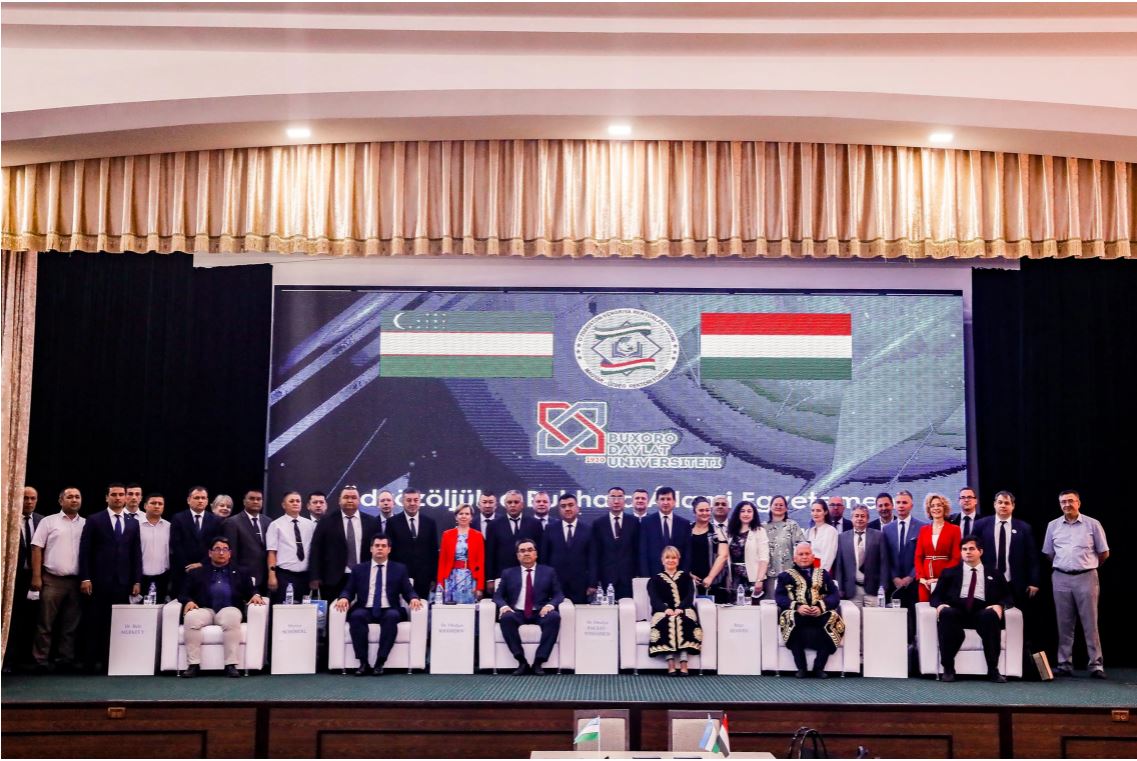Széchenyi István University concludes cooperation agreement with Uzbek universities
The cooperation agreements concluded by Széchenyi István University with Uzbek universities are centred on exchanges of teaching staff, researchers and students, as well as joint research and academic programmes. For the institution, Central Asia is becoming more and more valuable in terms of internationalization.
The Central Asian region is becoming increasingly important for Hungary – in this spirit, a delegation of higher education leaders travelled to Uzbekistan on the initiative of the Ministry of Foreign Affairs and Trade, organized by the Hungarian Rectors' Conference, with the aim of further internationalizing Hungarian universities. Dr Eszter Lukács, Vice-Rector for Educational Affairs at Széchenyi István University and a member of the delegation, said that one of the strategic goals of the institution is to increase its global visibility, and to this end, they are striving to increase the number of their foreign students, which now exceeds 600.
"Almost ten percent of the international students studying at our university come from Azerbaijan and Kazakhstan, which shows that the Central Asian region also has significant potential in this respect," said the Vice-Rector, adding that the meetings in Uzbekistan had been extremely successful for Széchenyi István University.
“We have signed three cooperation agreements - with Karsi State University, the Bukhara Branch of the Tashkent Institute of Irrigation and Agricultural Mechanization Engineers (BBTIIAME) and Samarkand State University - and one has been prepared with the Uzbek Institute of Entrepreneurship and Education in Denov. The most important points of the contracts are about the preparation of teaching staff, researcher and student exchanges, as well as joint research and academic programmes,” explained Dr Lukács.
Members of the Hungarian delegation among their Uzbek hosts
The model change took place successfully at Széchenyi István University last August, and the institution came under the governance of the Foundation for Széchenyi István University. The transformation aroused great interest among the Uzbek partners, so the Vice-Rector spoke about the background and experience of the process in several places: in Tashkent, at the request of Orsolya Pacsay-Tomassich, State Secretary of the Ministry of Foreign Affairs and leader of the Hungarian delegation, to Dr Shahlo Turdikulova, Deputy Minister of Innovation of the Uzbek Ministry of Innovation, to Otabek Fayazov, Deputy Head of the International Cooperation and Innovation Department, to the local television in Samarkand, and finally to the participants in the plenary session at Bukhara State University.
“The Uzbek partners were primarily curious about how to make the universities more self-sustaining. I emphasized to them that the change of model resulting in stability, financial strengthening and greater predictability is the answer to the involvement of external financing in Hungary: we increase our resources with industrial partnerships, tenders and a strong foundation board,” said Dr Lukács.












